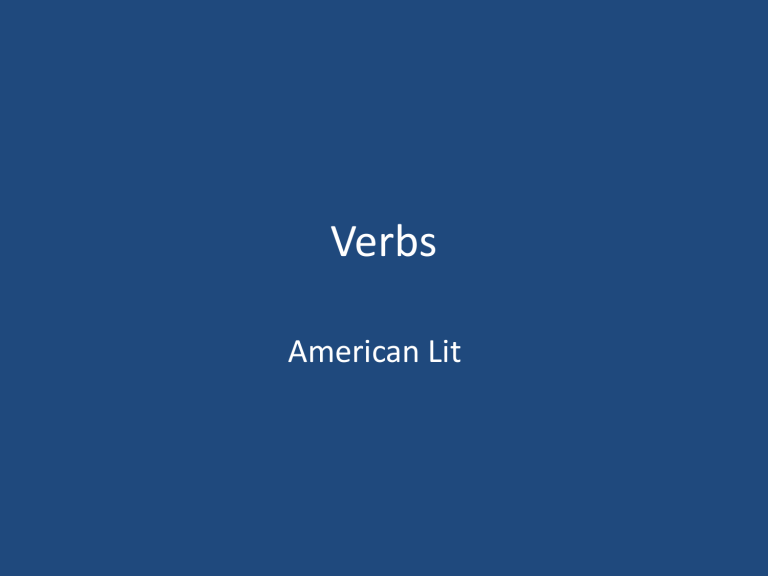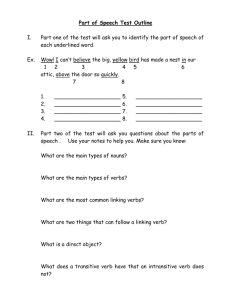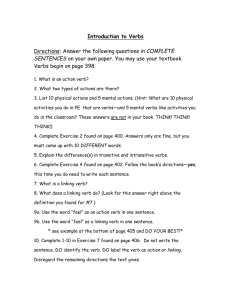Verbs - HausauerAmLit

Verbs
American Lit
Verb
• a word or group of words that expresses time while showing an action, a condition, or the fact that something exists
• help make statements, ask questions, or deliver commands
• every complete sentence must have at least one verb
Action and Linking Verbs
• Action: is a verb that tells what action someone or something is performing
• can be visible or mental
• EX: Tim baked an apple pie.
• EX: I thought of you.
• Linking: is a verb that connects its subject with a noun, pronoun, or adjective that identifies or describes the subject
• Ex: That man is a famous hockey player.
• The ice surface seems smooth.
The forms of be
The verb be is the most common linking verb
-most often, the forms of be that function as linking verbs express the condition of the subject, but they may also express existence
Ex: The skater is on the ice.
• see chart on page 375
• other linking verbs –see chart on page 375
• some other linking verbs may also be action verbsdepends on the context of the sentence.
• Linking: The air felt cold.
• Action: The skiers felt a chilly wind.
Verbs: Either Transitive and
Intransitive
• Transitive: directs action toward someone or something named in the same sentence
• the word toward which a transitive word directs its action is called the object of the verb
• determine the object by asking whom or what after the verb
• Intransitive: does not direct attention toward anyone or anything named in the same sentence
• linking verbs do not express action, so they are always intransitive
Examples
• Transitive
– He drove the car around the block.
– They climbed the mountain that winter.
– The dangerous storm stopped the trip.
• Intransitive
– He drove around the block.
– They climbed very slowly.
– The trip was stopped when the storm came.
Verb Phrases
• a verb that has more than one word is a verb phrase
• consists of a main verb and one or more helping verbs
• Helping verbs are often called auxiliary verbs
• as many as 3 helping verbs may precede the main verb in a verb phrase
Verb Phrases
• the forms of be can be used as helping verbs
• a verb phrase may be interrupted by other words
• other helping verbs include
– do
– does
– did
– have
– has had
– shall
– should
– will
– would
– can
– could
– may
– might
– must
Examples
• I should have taken a horse-and-carriage ride through the snow
• Should I take a horse-and-carriage ride through the snow?
• They will be going to the arena.
• They will soon be going to the arena.







